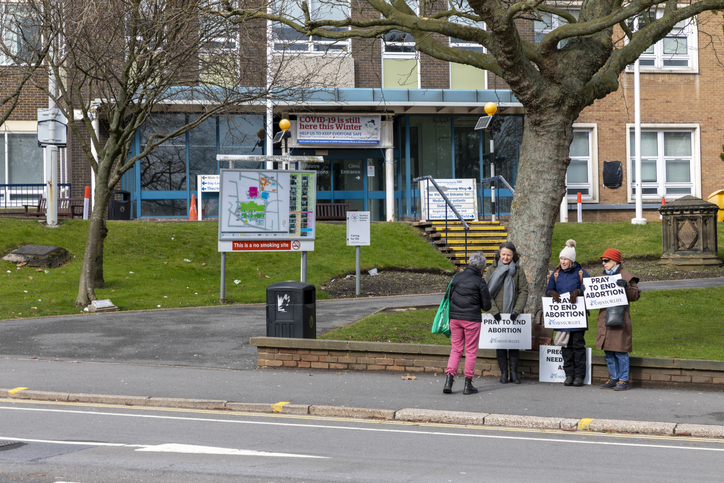Legislation that proposes a cure worse than the disease should give Parliamentarians pause.
Often, we think of the Public Order Bill in the context of eco-warriors supergluing themselves to the M25 or to frames of portraits in the National Gallery or, closer to home, around the Speaker’s chair in Parliament. These events cause serious disruption to civil life and to people’s businesses, and rightly should be outlawed.
It is frustrating and disappointing then that Rupa Huq MP has capitalised on the desirable aims of the Public Order Bill to table an undesirable amendment, seeking to criminalise much more innocent – and lawful – activities. To complicate things further, Stella Creasy MP has now become the amendment’s sponsor at the eleventh hour.
Her amendment would introduce ‘buffer’ zones around abortion clinics which target peaceful demonstrators. Specifically, she wants to make it illegal for anyone to interfere with a decision to access or provide an abortion if they are within a 150-metre radius of an abortion clinic. The amendment defines “interferes with” so broadly it applies to those merely expressing an opinion or attempting to inform someone about abortion services.


Equally problematic, the buffer zone extends to property within public view, running the risk that conversations about abortion in your front garden (if covered by the buffer zone) could be criminalised.
As a Parliamentarian with a duty to act in the public interest, I have three main concerns with this proposal.
First, laws are already in place to protect women from harassment when they attend appointments at abortion clinics. Should vigils or offers of support cross the threshold into harassing or disruptive behaviour, police have several avenues of recourse including the ability to issue Public Space Protection Orders and powers under the Local Government Act 1972, Public Order Act 1986, the Criminal Justice Act 1988, Protection from Harassment Act 1997, and the Anti-Social Behaviour, Crime and Policing Act 2014. Additionally, the Police, Crimes, Sentencing and Courts Act 2022 – which became law in April – allows police to intervene when demonstrations create a serious disruption.
Secondly, the amendment is poorly drafted, and so risks extending the criminal law’s reach where such laws should not tread. As I observed earlier, the amendment could criminalise anything from merely expressing an opinion outside an abortion clinic to conversations between neighbours who live in the buffer zone. Are doctors who live in the buffer zone going to be criminalised for having a conversation about abortion on their driveway if they are in public view? What of midwifery colleges located in the buffer zone – could they be criminalised for teaching students about the merits and risks of abortion? People praying peacefully could face time in prison while obnoxious counter-protestors could walk free.
It draws no distinction between activities that cause harm and those with which people simply disagree. This is an important line to draw because the blunt force of criminal law should not be applied lightly or inappropriately. Do we really want to start criminalising people whom we simply disagree with?
The buffer zone itself is also arbitrary. As Rupa Huq herself conceded in the Committee Stage debate on this issue, “The distance need not be 150 metres. We just took that from Ealing[‘s censorship zone], because that is where the main road is…”. As such, this blanket ban overlooks the unique circumstances of each clinic and what would constitute a proportionate response in every case.
Crucially, it also stands in opposition to other provisions of the Public Order Bill which do not include blanket bans around protest activities.
Finally, the amendment carries serious – and unintended – implications for freedom of speech. We pride ourselves on Britain’s longstanding tradition of liberalism and openness which necessitates the ability to challenge ideas, debate controversial opinions, and engage in protests. Criminalising such activities contradicts this tradition and is untenable in a free society.
For these (and other) reasons, successive Home Secretaries have held the view that buffer zones are a disproportionate response to mainly passive activities, especially when the police already have powers to protect public safety and curtail protest activities that cause harm to others.
When doctors swear the Hippocratic oath they promise, first, to do no harm. Parliamentarians should administer a dose of that medicine in public life and vote against this amendment.
Scott Benton is the Conservative MP for Blackpool South.












